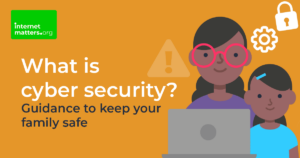Downloading & viruses guide
Children delight in the freedom the internet gives them to download any song, film or TV programme they want. However, most of the content children download is under copyright. This means it belongs to the person, group or company that created it and payment is usually required.
Illegal downloads also put children at risk of exposure to viruses, spyware and malware. Learn what you can do to help children understand online safety to make smart choices.

What’s on the page
What are the risks of illegal downloading?
Watch Into Film and Industry Trust educational video to help children understand dangers of malware
 Close video
Close video
The ability to access music and films on demand is a great benefit of the internet. However, there are risks with accessing content illegally.
To help keep your child safe, keep the following information in mind:
- Check how they get their content: are they enjoying a streaming experience from paid-for platforms? Or are they searching for free content online? The film and music industries monitor illegal downloads and may take legal action.
- There’s an increased risk of malware: children risk downloading viruses or spyware when downloading or streaming content illegally.
- Make sure you use antivirus products: bloatware, trojans, malware and worms can also be downloaded. These can do anything from taking control of your computer to slowing your device down. Whether your child downloads content or not, it’s a good idea to install specialist software.
- Cyber attacks are more likely: phishing and pharming are ways to access private information. Downloads may result in your child accidentally clicking on links that ask for private information.
- File-sharing websites usually need special software: if your child is using one to download illegal material, you may find a related icon on the desktop. Talk to them about the risks to help them understand why it could result in harm.
How can I ensure my child accesses content safely?
Talk to your children about safe ways to access content online such as through streaming services. Explain how viruses and other malware can attack and harm a computer.
Make it clear that it’s illegal to download most films, songs and games without paying for them.
Research any download site your child is using and check it’s legal and trustworthy.
Check your child’s computer and device internet histories regularly for signs of illegal activity. A total lack of internet history may also be a sign of illegal activity, which is important to talk about.
Check your bank accounts and all bills you receive for any signs of identity theft. This may be theft of your identity or of your child’s.
Explore our privacy and identity theft hub to learn more.
Point your children to secure sites where they can buy music and films, such as iTunes or Amazon. You can limit the amount they spend by getting them gift cards for a particular sum. This is also true for streaming services like Netflix and Disney Plus.
Look into services such as Spotify (for music) or Netflix (for films) which allows unlimited streaming.
If an attachment seems suspicious, check with the person who sent it and scan it with appropriate antivirus products or software before opening it. Some software provides a list of reputable sources for downloading as well as flagging those known for harmful content.
Additionally, some websites offering illegal content may disguise download buttons. As such, clicking on the wrong button can result in viruses, phishing or other forms of cyber attacks that put your child’s online safety at risk.
If something mentions ‘free’ or terms like ‘Unlimited Movie Downloads’ and ‘100% legal’, these links will usually take you to pirated content.
Learn more about pirated content and help children identify misleading information.
Internet security tips for parents
Here are 5 top tips to help keep protect your devices from malware:
1. Use a password
Ensure your wireless connection is secured with an encrypted password.
2. Set your parental controls
Use parental controls to reduce the likelihood of children accidentally viewing inappropriate content.
3. Have active antivirus software
Keep your antivirus software up to date. You can set the software to automatically scan your computer but make sure you monitor this regularly.
4. Keep your operating system and apps updated
Have the latest version of your operating system and apps installed on your devices.
5. Look for advice
Check in with your internet provider to get their latest advice on how to keep one step ahead of the cybercriminals.
Recommended resources
The following links can help you make sure your child accesses films and music legally while promoting online safety.





